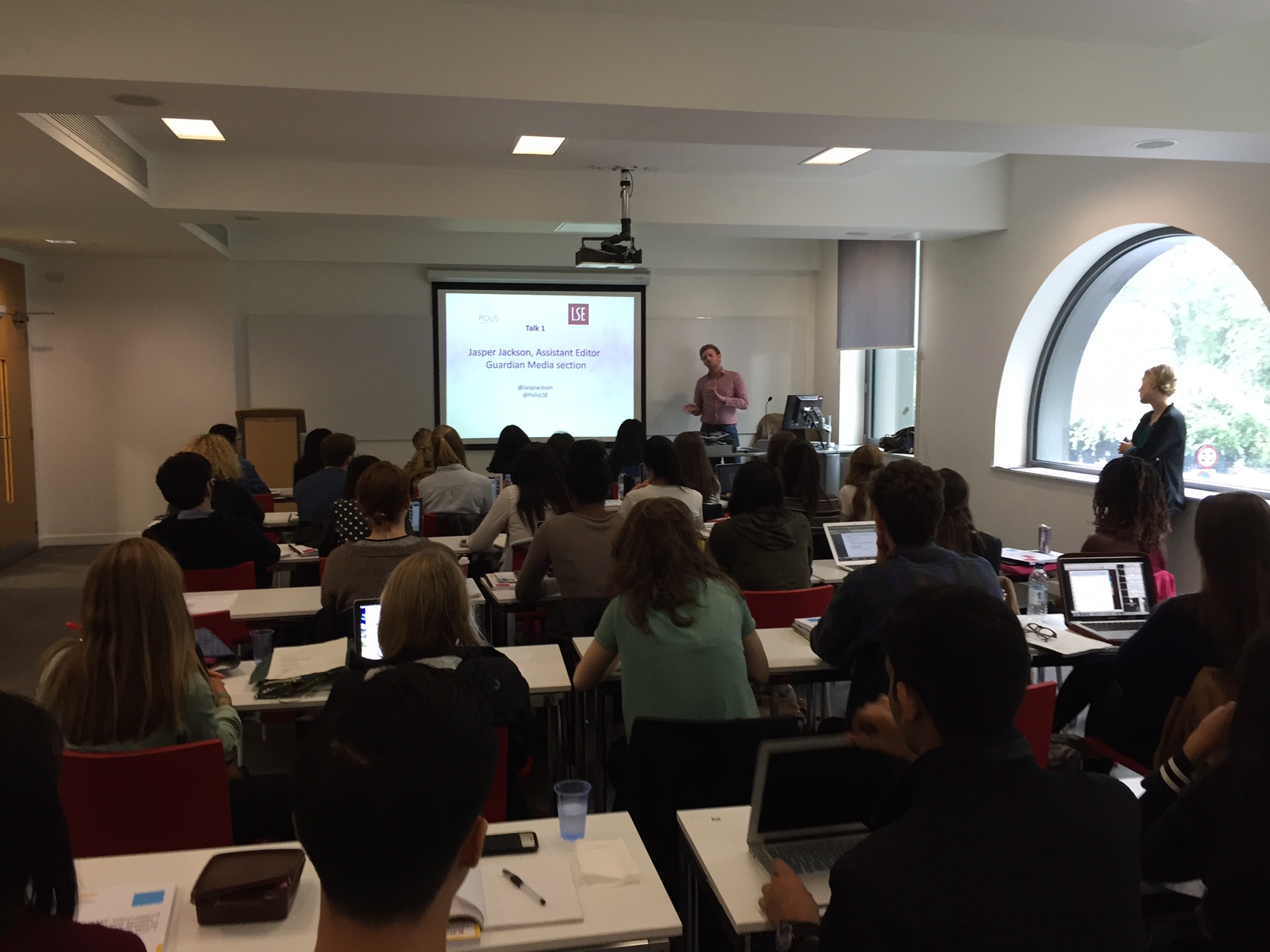There’s a perennial air of mystery around the media-consuming habits of teenagers and young adults. Most content producers being quite a bit older, it can be hard for them to take the pulse of the youngest demographics, a task that is perhaps more dauntingly urgent than ever in today’s shifting digital landscape.
BAFTA brought together representatives from across the mainstream news spectrum– Nathalie Malinarich, Mobile and New Formats Editor at the BBC, Jon Laurence, Digital Editor at Channel 4 News, David Gibbs, Director of Digital at Sky News and Sky Sports, and Louise Ridley, News Editor of Longform and Special Projects at Buzzfeed UK– for “Delivering News in the 21st Century,” to discuss this unique industry moment. This report by Jill Russo, an MSc student at the LSE.
Malinarich brought a video story on animal trafficking produced to look like a series of mobile phone text conversations.
Laurence cued up a snappy infographic animation on the demographic make-up of the UK.
Gibbs and Ridley each showcased story montages that could not have been more stylistically different: Buzzfeed splashed a series of rough but highly shareable odds and ends, while Sky ran through a sleeker and more polished reel.
Ridley and Laurence emphasized their role in contextualizing the complex political environment through entertaining, digestible evergreen content on top of their investigative journalism. Both the BBC and Sky highlighted their continued commitment to objectivity and verified coverage in the digital age.
Not one of the panelists believed that young people lacked interest in “serious” news, citing the popularity of heavier current-events stories online. Overall, they projected optimism, while recognizing that creating content across multiple platforms is both challenging and resource-expensive.
In spite of the relative positivity onstage, some post-talk questions from the audience took an almost accusatory tone. Concerns expressed about news gatherers’ “rush to be first” and an apparent conflation of deliberately fake news and accidental reporting errors underlined a problem that goes beyond changing revenue models and audience fragmentation: people really don’t trust the news.
Trump’s “alternative facts” and the UKIP bus weigh heavily on the public’s consciousness and it’s clear that journalists are not necessarily seen as a solution to the confusion. Insisting on the continued quality and trustworthiness of traditional news outlets, as was the panelists’ response to the anxieties expressed during the Q&A session, may not be quite enough to regain public confidence.
However, BAFTA’s panel presented some very interesting creative strategies and increased capabilities of responding to audiences. It’s a scary but exciting time for news producers (and consumers!), and transparency in the form of such public conversations may help laypeople to better appreciate and contribute to these efforts.
Jill Russo is an MSc student in Media & Communications at the LSE. @jillrusso







